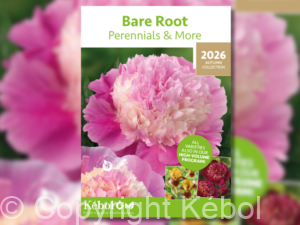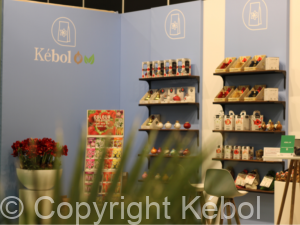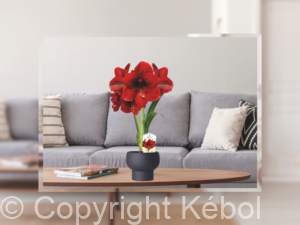
Autumn is already around the corner at Kébol
Check out our bare root perennial collection of Autumn 2026 At Kébol, we are currently in the final stages of packing and preparing containers for

Before the (bare root) perennials go into the ground to grow, a whole process takes place. At Kébol, Kees van der Meij (Sales Manager Bare Root Perennials), ensures that the range and collections are brought to the attention of customers and orders are placed. A process Kees would like to high light and share more about.
As Sales Manager Bare Root Perennials, Kees is working every day on providing information about specific products to customers, maintaining connections and working on the range for the upcoming season. Kees: “At the moment the emphasis is on selling the surpluses of perennials from the cool cells. Sales in Europe, where I am involved, are largely done through brokers. We sell perennials in over 25 countries through brokers to small, specialized nurseries. These growers have an extensive range and great quality plants to choose from. Because these nurseries generally grow a wide range of products in small numbers, we also offer our plants in smaller units.”
In addition to sales to nurseries, the perennials are also sold to mail order companies. Kees says that selling to these types of companies requires a different skill set. “Through our years of experience, I have learned what could be a good addition to a mail order catalogue, which varies per country. Some varieties are considered ‘classic’ and have been sold for years. Other (special) varieties are often sold for a few years. That’s why it is important as a supplier to offer new varieties.”
At Kébol we mainly sell (bare root) perennials. From Spring to Autumn perennials grow, which are then harvested in late Autumn. Kees: “When the plants are delivered at our location in Rijsenhout, they are immediately packed in peat. We purchase our plants during the growing season to ensure we can deliver the best quality.”
When planted, perennials last for years. How come Kébol sells perennials every year? Kees explains: “Perennials can last for years. Take a peony for example. This can easily remain in the garden for about twenty years and fully bloom, but garden enthusiasts also want some changes in the garden. Plants that would survive for several years are then exchanged for other species for a change. In addition, quite a few perennials are used as patio plants, such as Astilbe. This is a beautiful plant to place on the terrace because of its fresh, green leaves and bright red, pink or white flowers. However, once a plant like this has finished flowering, it is often thrown away.” All in all, this ensures that there is a demand for perennials every year.
Getting customers to commit to you and maintaining contacts is essentials when it comes to sales. Kees: “There are various reasons why customers purchase from Kébol. First, sharing information is the most important thing. That’s why I provide brokers with product information by sharing the catalogue. Second, I also give presentations to groups of customers to transfer knowledge. Or, if desired, I provide training to a broker’s representatives to teach them what to pay attention to when it comes to selling perennials. It’s nice to see that this has a positive effect on the sales of the perennials. Besides that, I also learn from my contact with brokers and their clients.”
Kees also visits nurseries to talk to growers himself to find out which products are needed, since this can differ per country. Kees uses the information from these conversations to put together a new range.
Finally, Kébol thinks it’s important that images are available of the perennials. “We make our own photos available to our customers,” says Kees. “When visiting growers, fairs and show gardens, I take a lot of photos. Customers really appreciate that.”
In recent weeks, Kees and his colleagues Joey and Johan have been working on determining the range for Autumn 2024 and Spring 2025. Kees: “For this we analyze the sales of the current year. Some varieties are no longer offered the following year. But we also add new varieties to the classic ones that we have been selling for years. This is something customers ask for. There is a wide range in the world of perennial plants. Therefore, it is a good idea to offer a refreshing range every year.” Right now, the range has been determined and as soon the time comes, this collection can be ordered again.
The market in which Kébol operates is quite stable, says Kees. “Perennials are very popular yet are still unknown to many consumers. At the same time, growing and selling perennials is a specialism. If we can continue to share knowledge and maintain the quality, then a good future lies ahead for perennials.”

Check out our bare root perennial collection of Autumn 2026 At Kébol, we are currently in the final stages of packing and preparing containers for

Agenda Interested to find out at which fairs you can find Kébol in 2026? Read all about the fairs we’ll be visiting the next year.

Potting season in its prime It’s the potting season’s prime for amaryllises! At Kébol, our teams work with precision and dedication to deliver high-quality amaryllis